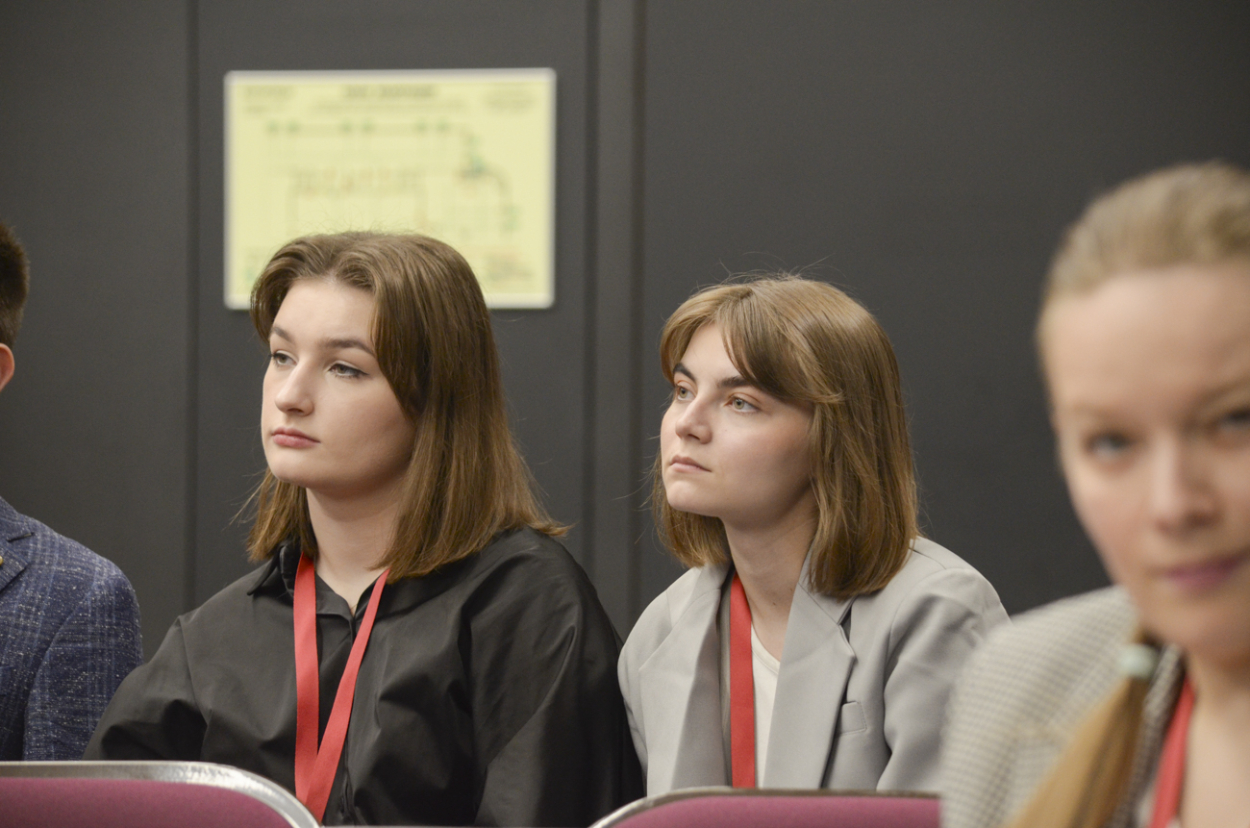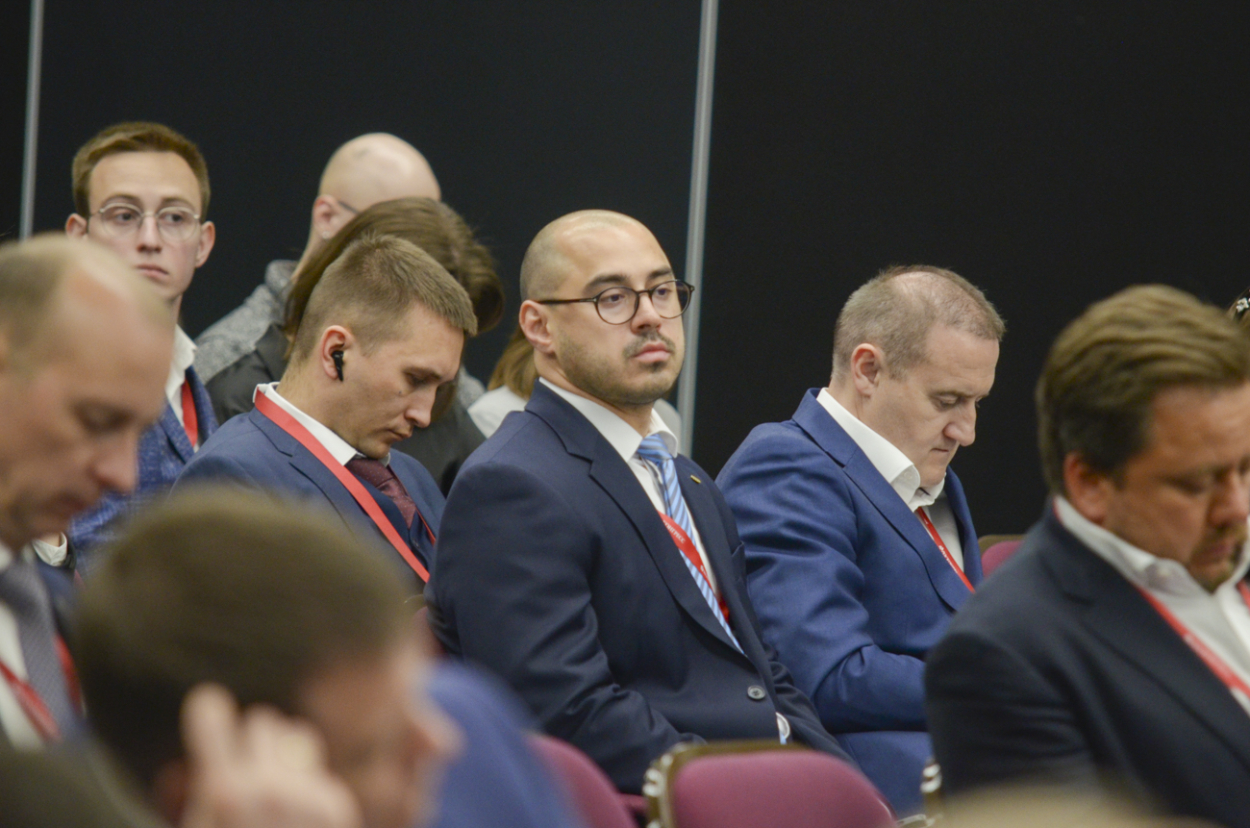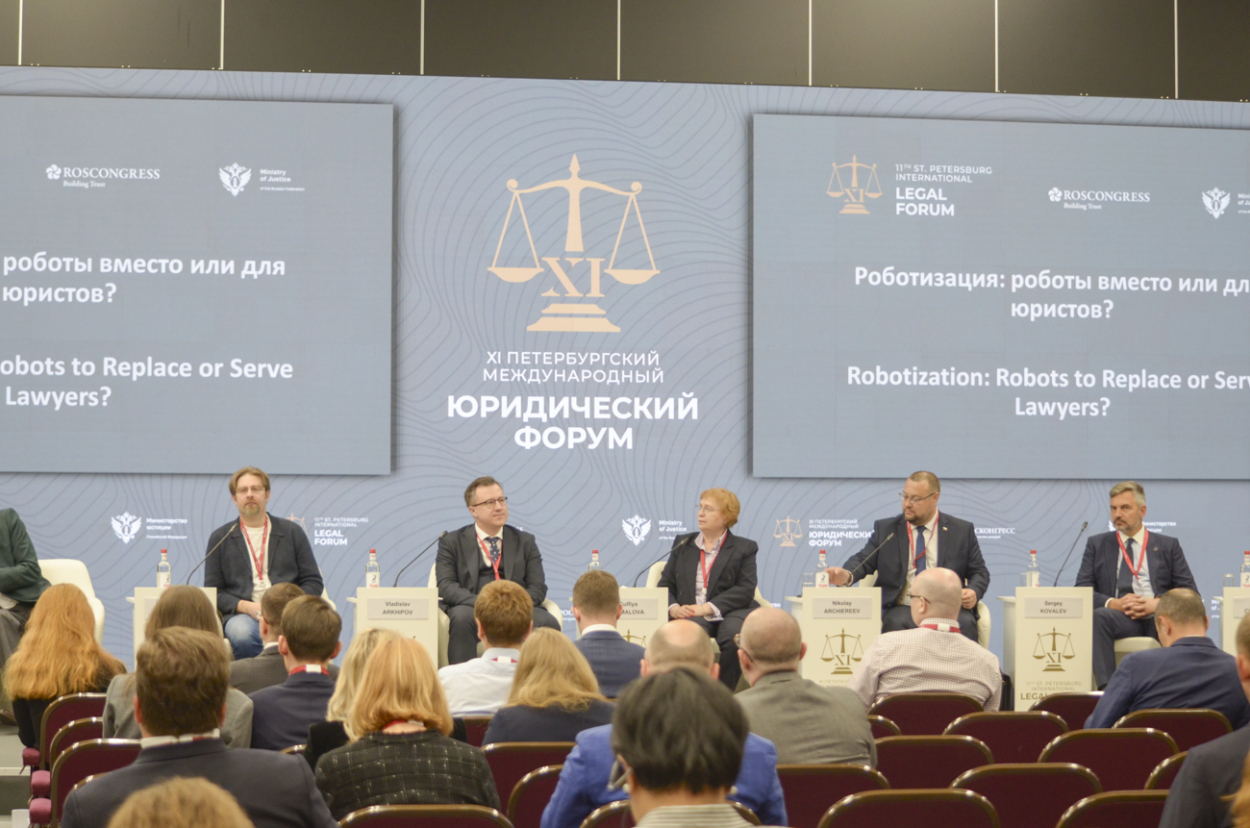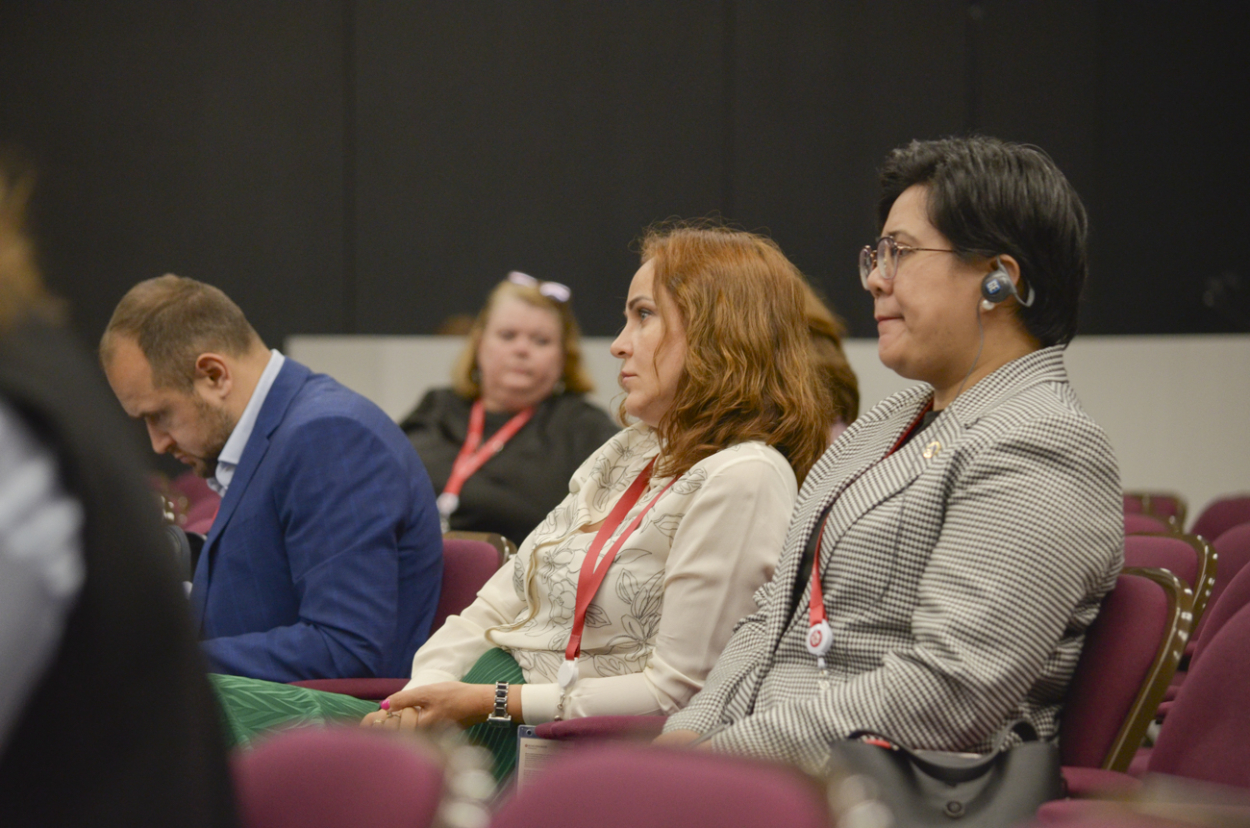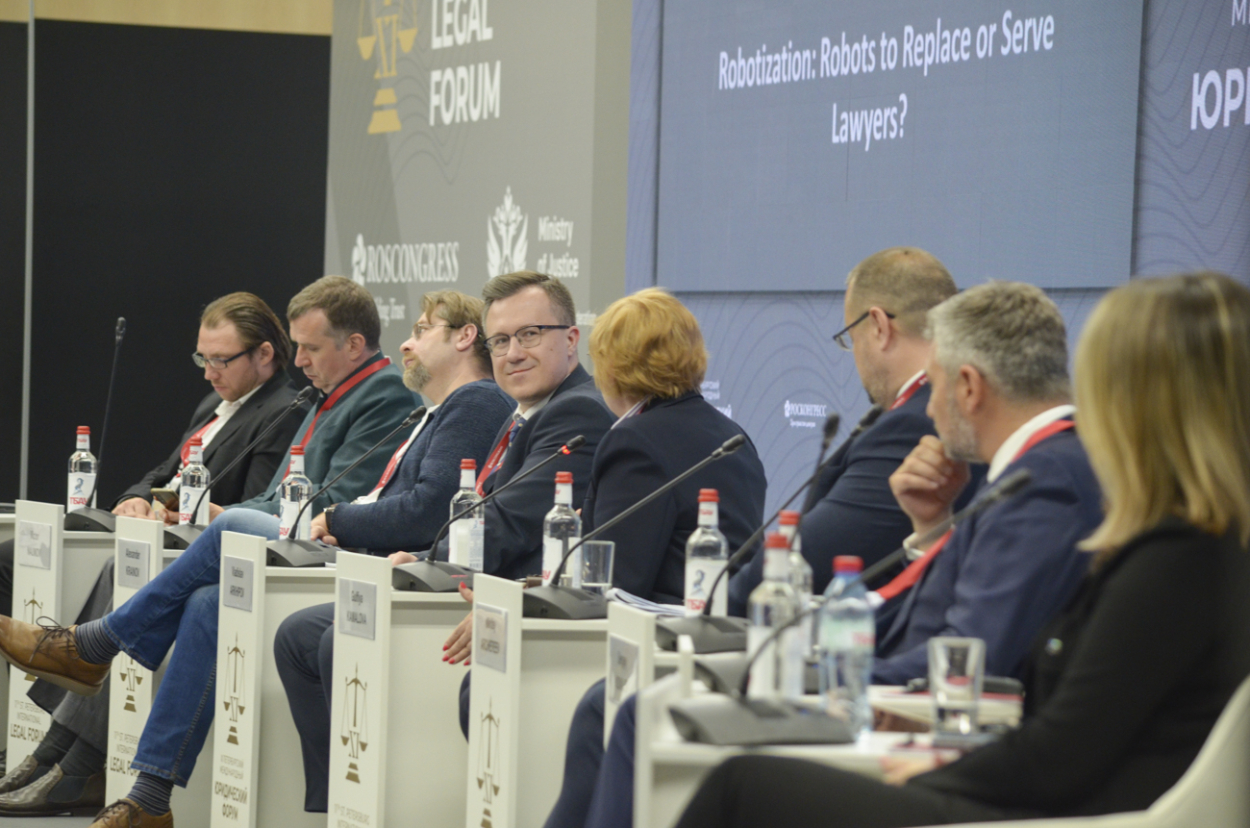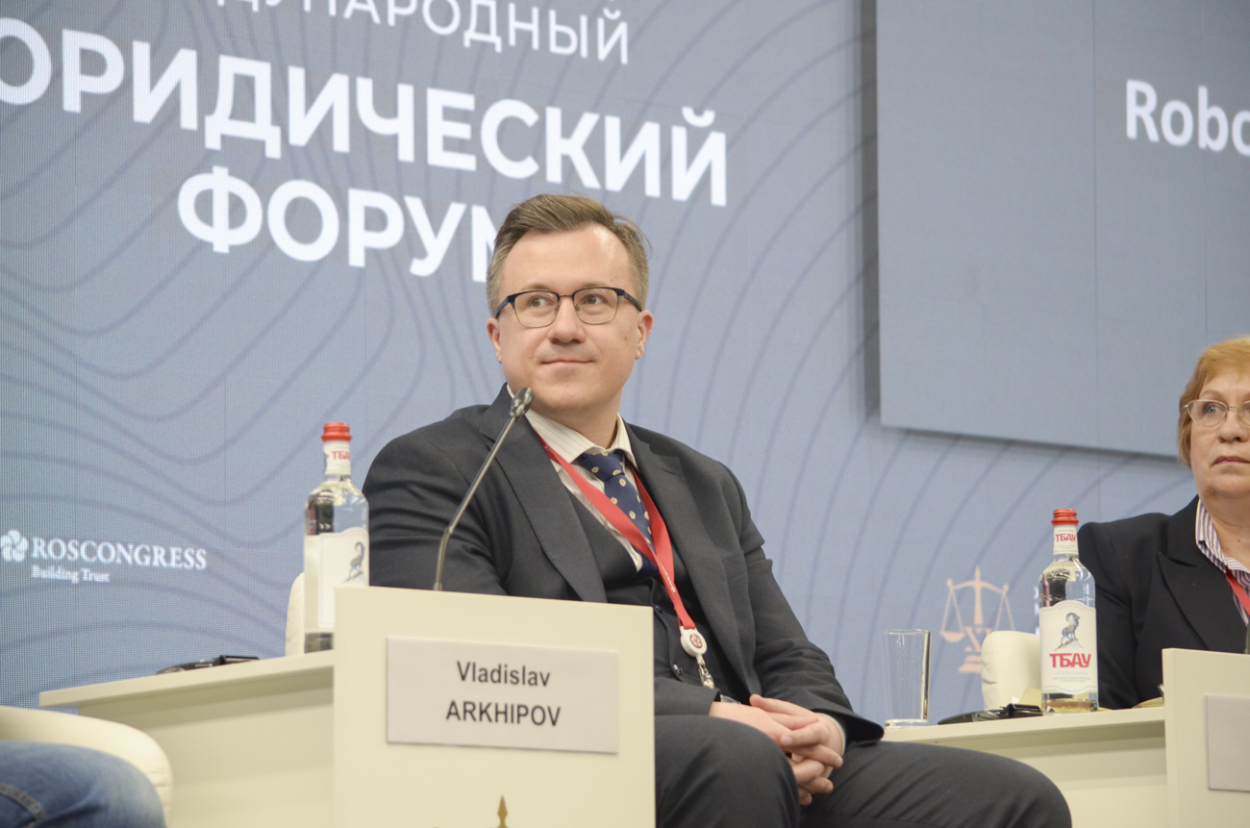St Petersburg University expert discusses the prospects of lawyers without digital skills
Participants in the panel session "Robotisation: robots to replace or serve lawyers?" at the St Petersburg International Legal Forum have discussed the threats and opportunities that IT technology bring to lawyers and how they are changing the legal profession today.
Professor Vladislav Arkhipov, Head of the Department of Theory and History of State and Law, Director of the Centre for Research on Information Security and Digital Transformation at St Petersburg University, was one the panellists. He suggested that, when thinking about the skills that a future lawyer needs for practice, it is essential to make a distinction between digital skills and legal competencies proper. He gave an analogy from another professional field. Thus, most philologists working with foreign languages today widely utilise digital translation tools to reduce the amount of routine work, with subsequent editing and refining the text using their knowledge and expertise. According to Professor Arkhipov, the ability to assess the translation quality and correct the text accordingly is based on competencies that will never change nor sink into oblivion.
In the SPbU Start-up − 2022 student contest of innovative interdisciplinary projects, the DoctorJura team presented a project aimed at developing a digital assistant that can provide legal aid.
‘A lawyer is acutely aware of what the essence of law is, that is feeling a sense of injustice. The Department of Theory and History of State and Law at St Petersburg University traces its history, inter alia, back to the Department of the Encyclopaedia of Law at St Petersburg Imperial University, headed by Professor Leon Petrażycki. For Professor Petrażycki, law was not just a system of publicly promulgated standards of conduct backed by state coercion. He believed that law should be understood as every imperative-attributive experience. Hence, a lawyer should be able to feel all this legal "matter". At the same time, a lawyer should possess a certain base of knowledge,’ Professor Arkhipov said.
In addition to hard skills and soft skills that legal professionals should possess, Professor Arkhipov singled out another competence that is to be formed in future lawyers by cultivating a legal culture. For instance, a law school graduate may not know all the nuances of the doctrinal constructions of the 19th century German civilists. In some branches of law, however, this is a door opener, paving the way for new opportunities in your career. Thence, the necessary legal culture is formed by studying these constructions. Indeed, there are certain subtleties and complexities in other branches, including digital law, which requires a keen awareness of the limits of legal intervention in the technical sphere.
What are we ultimately dealing with in digital law? We have the media that have changed in a broad sense. We have new gadgets and artificial intelligence. But in essence, we are talking about relationships between people. I don’t agree that they will be radically transformed. It is not going to happen unless human beings and human nature change.
Vladislav Arkhipov, Head of the Department of Theory and History of State and Law, Director of the Centre for Research on Information Security and Digital Transformation at St Petersburg University
‘Since the beginning of recorded history, people have been motivated by passion and ambition. People seek fame, honour, and wealth. They fear death and live through experience. All these are of particular relevance to the conflicts between them. In other words, digital law does not regulate technology, but the relationship between people; mainly, the relationships pertinent to the use of these digital solutions,’ explained Vladislav Arkhipov.
Professor Arkhipov agreed with other panellists that the main competition will develop between those who use artificial intelligence in their work and those who choose not to do this. Will there be a place for lawyers without digital skills? According to Vladislav Arkhipov, they will certainly find a place for themselves. In matters where the emotional and communicative components are of prime importance, human solutions cannot be fully automated and replaced by technology. Some cases in legal practice, such as, for example, complex and conflictual inheritance cases, require a diplomatic, psychological approach and just warm human attitude and attention. Artificial intelligence will hardly be able to help. On the other hand, lawyers are already processing large amounts of data in their practices. Oftentimes, they use automatic text translation software or neural networks without even noticing it.
Other participants in the panel discussion included: Andrey Neznamov, Managing Director of the AI Regulation Centre at Sberbank; Victor Naumov, Managing Partner at Nextons, Professor in the Department of Information Law and Digital Technologies at Kutafin Moscow State Law University; Alexander Krainov, Director for Development of Artificial Intelligence Technologies at Yandex; Gulfiya Kamalova, Head of the Department of Informational Security in Management at Udmurt State University (Izhevsk); Nikolai Arkhiereev, Chairman of the Arbitration Court of the Republic of Bashkortostan (Ufa); Sergey Kovalev, Associate Professor in the Department of Civil and Labour Law at the Peoples’ Friendship University of Russia, Managing Partner of the Moscow City Bar Association "Kovalev, Tugushi & Partners"; Rimma Chichakyan, Head of GR-projects of the Group for Interaction with Government Bodies and Corporate Relations at Yandex.Taxi; and Anastasia Shchitova, Lawyer of the Regulatory Affairs Direction at the Artificial Intelligence Alliance.
During the panel session, the keynote speakers addressed the following issues: the prospects of predicting court decisions and the use of artificial intelligence in judicial decision-making; the replacement of judges by neural networks; and the use of technology by lawyers when performing routine tasks.


